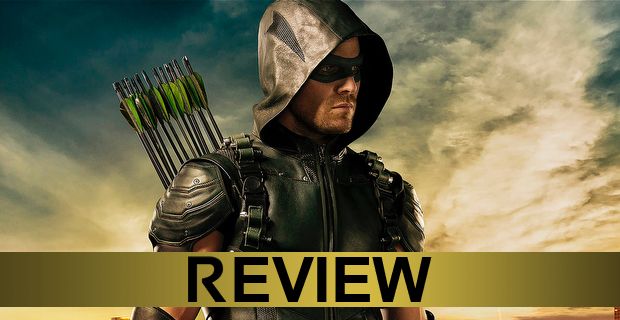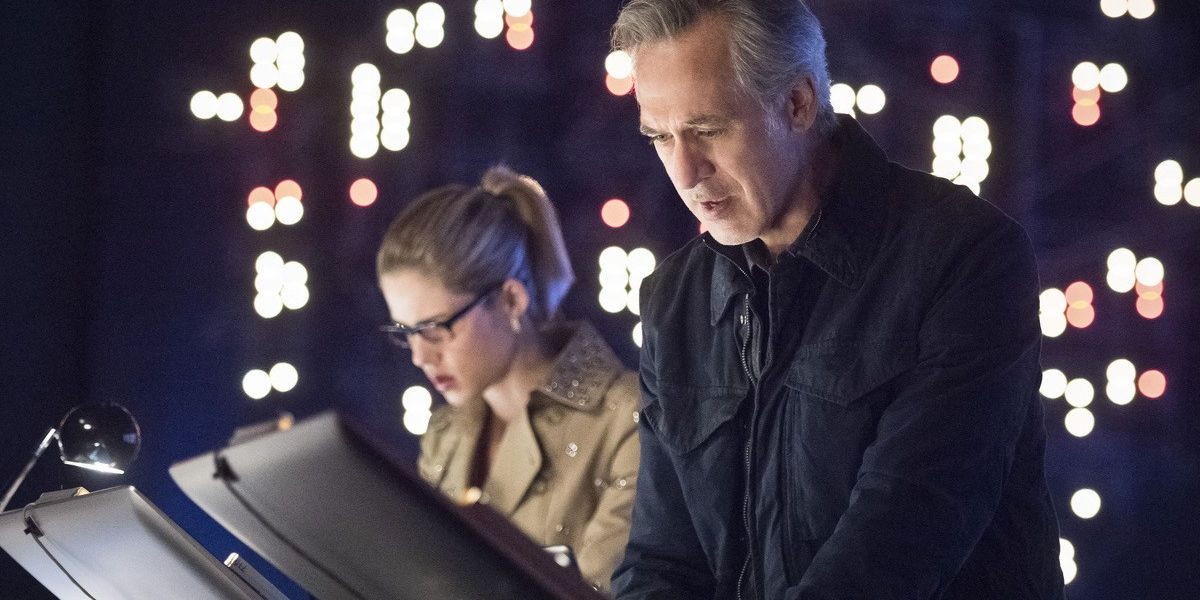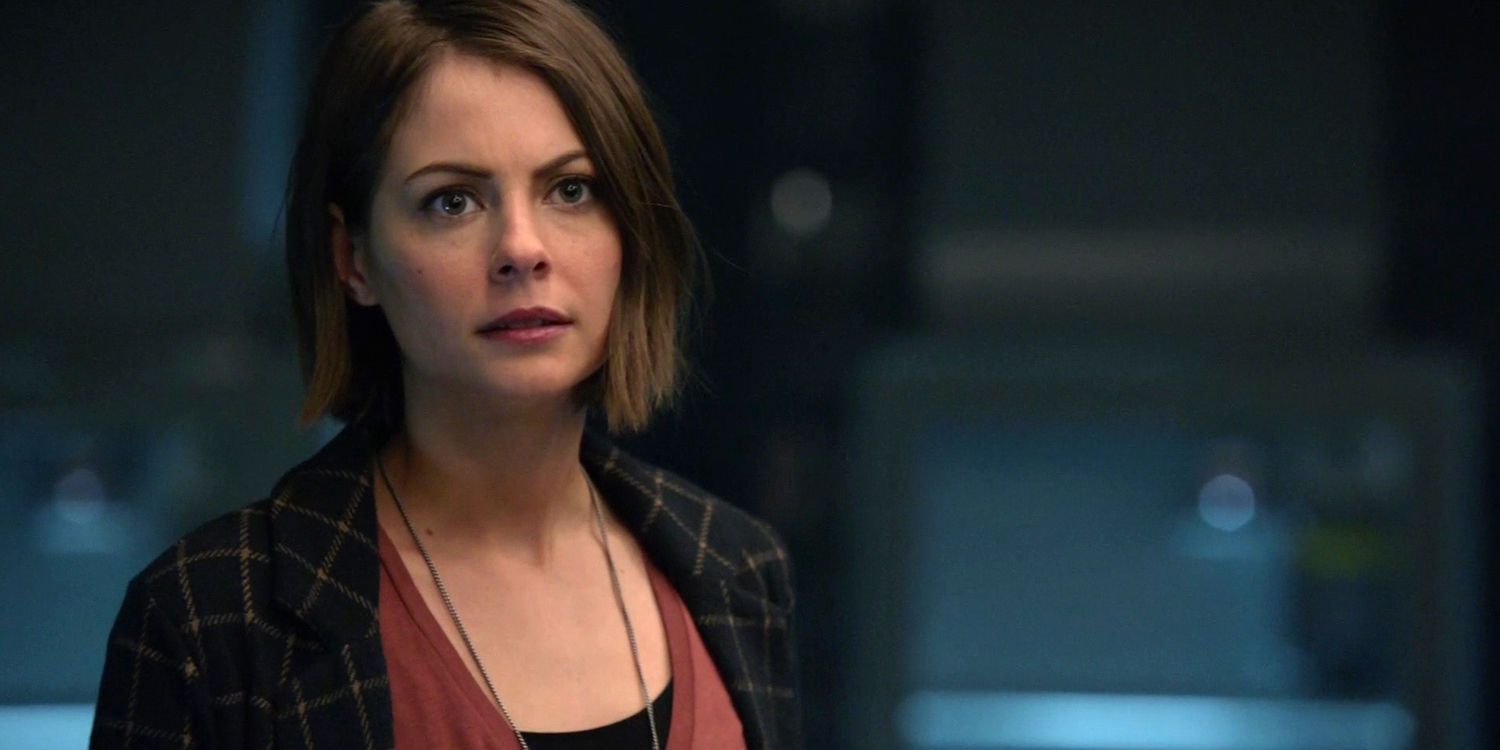[This is a review of Arrow season 4, episode 22. There will be SPOILERS.]
-
It would be safe to say that after the events of 'Monument Point,' Arrow has found a way to raise the typical stakes of the season's endgame considerably. While the basic structure is ultimately familiar – a megalomaniacal baddie aims to kill a bunch of people in order to see his will be done – Damien Darhk's plan takes the usual focus on Star City and makes it global. What's worse, Darhk actually makes good on his threat to bring nuclear annihilation upon the earth – because, when you're dealing with nukes the bad guy pretty much wins if one of them manages to detonate. And that's precisely what happens as tens of thousands of innocent lives are lost when Team Arrow comes up one ballistic nuclear missile short in its attempt to thwart Darhk's plan; proving once again close only counts in horseshoes and hand grenades – or in this case nuclear weapons.
The scenario is a curious fit for Arrow. There have been global implications to its villain problems before, as everyone from Malcolm Merlyn to Deathstroke to Ra's al Ghul and the League of Assassins each felt as though, if they weren't stopped in Star City (or Starling, depending on the season), they would eventually go on to bigger and badder things. But here the team is trying to prevent the destruction of the world with a bow and arrow and some furiously fast keystrokes, making the disconnect between the essence of the series and the aspiration of season 4 to apparently go big seem all the more pronounced. Still, given the exigency of the situation, and Team Arrow's failure – i.e., an enormous body count and now an impossibly charged-up supervillain – the potential repercussions could drive certain changes that may prove worthwhile to explore.
After Diggle killed his own brother, and now Felicity's role in diverting the nuke toward a less-populated place than its target of Monument Point – not to mention the death of Laurel – Arrow has been putting the emotional hurt on its crew in a big way. And while, outside of Oliver, the series doesn't necessarily have the best track record in terms of following through on its explorations of character-altering experiences – take for instance Felicity's midseason spinal injury – the potential for seeing another side of these characters is enough that Arrow playing around with nuclear weapons and fratricide might prove to be more than upping the ante for the sake of upping the ante.
That is a big maybe, especially when 'Monument Point' ups the ante by bringing in a handful of familiar baddies like Brick, Murmur, Anarky, and, to a certain extent, the Calculator and Malcolm Merlyn. The hour is on the verge of being overloaded by the sheer volume of characters and resultant obstacles being thrown at the core cast of characters for what seems like no other reason than it gives them something to while waiting the nukes to launch. That's not necessarily a bad thing, as Kevin Tancharoen of Mortal Kombat: Legacy directed the episode, and he brings some much-needed energy to the many fight sequences on display throughout the hour. In other words, if there's going to be a lot of treading water because the plot structure dictates something like, say, the launch of several nuclear missiles has to happen near the end, then filling that time with several well-crafted action sequences isn't necessarily a bad thing.
That isn't to say the season's antepenultimate hour doesn't have ambitions that extend beyond fisticuffs and possibly writing off the deaths of tens of thousands of people as a mere plot device. Woven in the larger nuclear tapestry of the story is a thread concerning fathers going to certain extremes to protect their daughters. That has essentially been the crux of the Malcolm/Thea relationship since she found out about her evil dad, and so 'Monument Point' has little problem making this ancillary bit feel like it carries some weight, even though it ufolds away from the main plot. Because he's only been in one other episode, the Calculator doesn't have the same substance, so every time he mentions he's doing the right thing for the sake of his daughter, the words tend to feel forced rather than forceful, and it becomes increasingly obvious how much the interaction between Felicity and Noah is actually feeding off the emotional cache of Malcolm and Thea.
You can't really blame Arrow for wanting to bring the Calculator back and for trying to establish some kind of ambiguity with regard to his character, as there's plenty of emotional ground to investigate between him and Felicity, and in order to do that something has to be done with the impediment that is his criminality. It's not quite a redemption arc for Noah but, like Thea's continued interactions with Malcolm, it helps that the character is more than a one-note villain who happens to have a superhero for a daughter.
The question then becomes: Will Arrow be able to make something of these threads with only two episodes to go? Thea certainly stands a better chance, given the lengthy history she and Malcolm both have. Felicity and Noah is a different kind of question. There's clearly something there, as the father-daughter heist sequence at Palmer Tech proved an entertaining distraction that nearly made up for the conspicuous dearth of Echo Kellum's Curtis Holt. That makes Felicity getting to know her father an appealing storyline for future episodes, so it will be interesting to see how the series balances that with the needs of the season as it pushes towards the finale.
-
Arrow continues next Wednesday with 'Lost in the Flood' @8pm on The CW. Check out a preview below:



